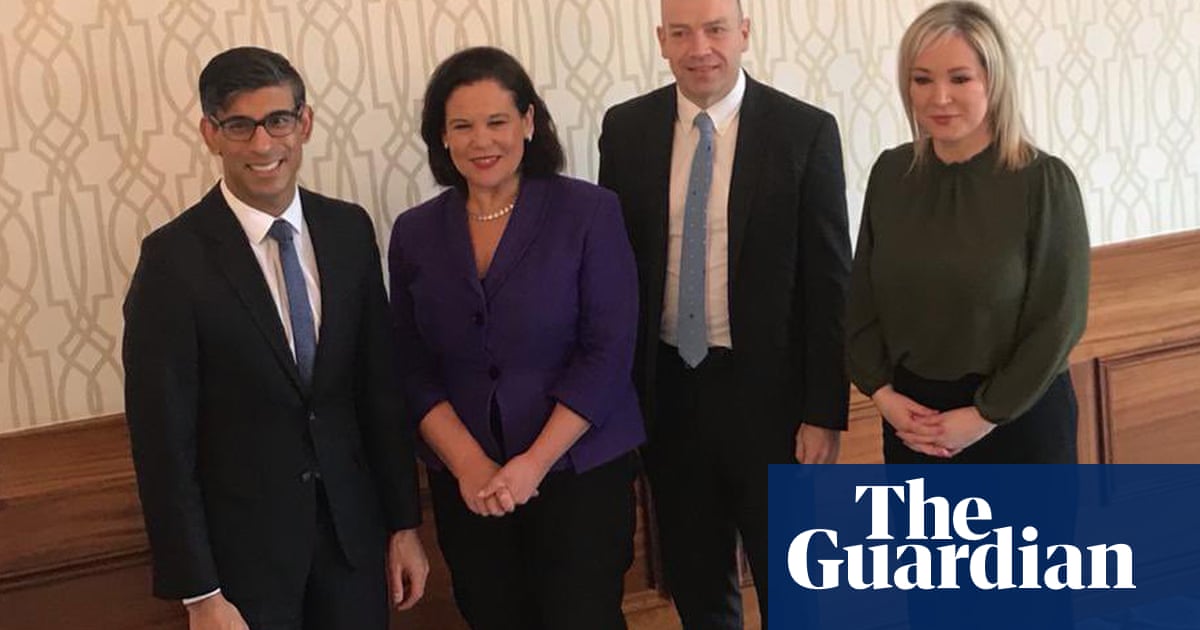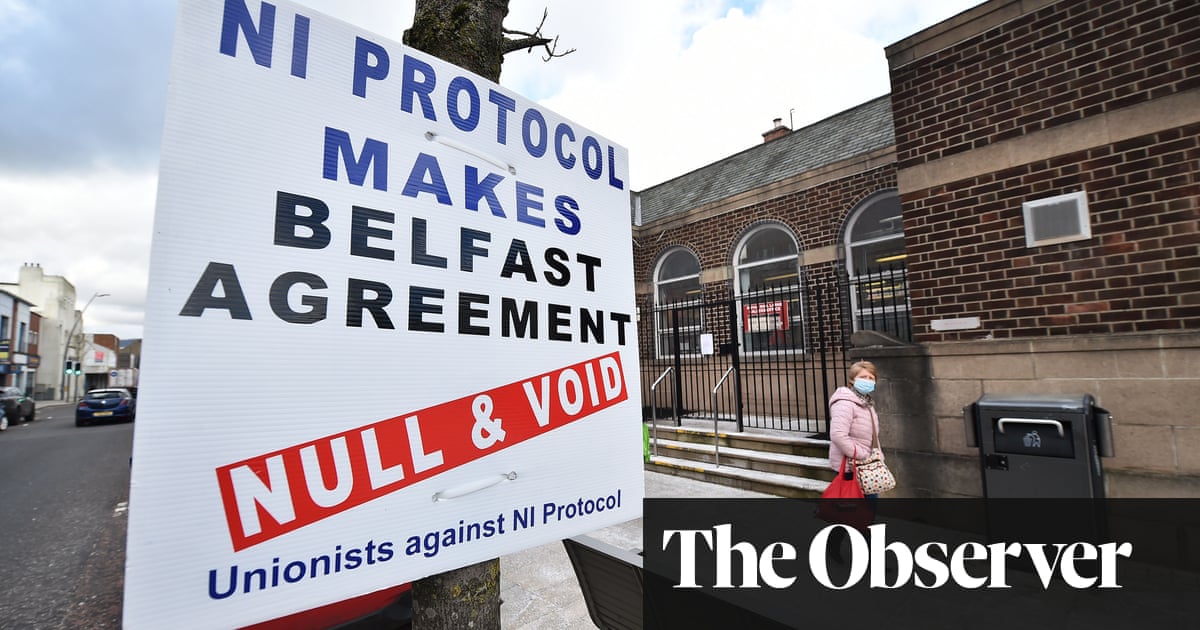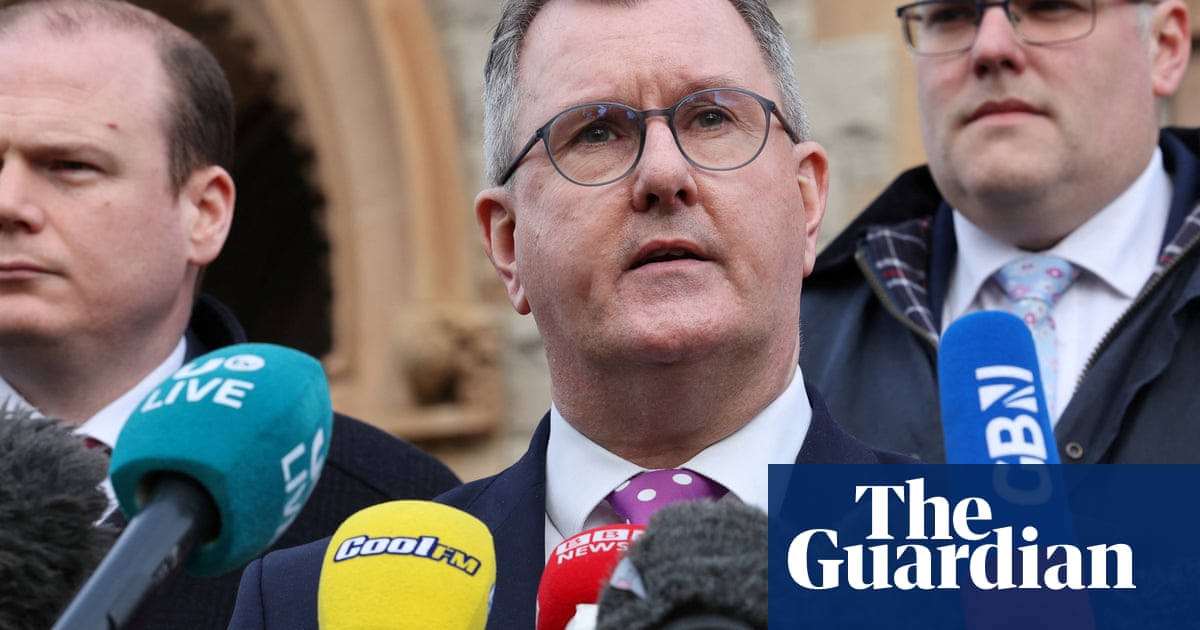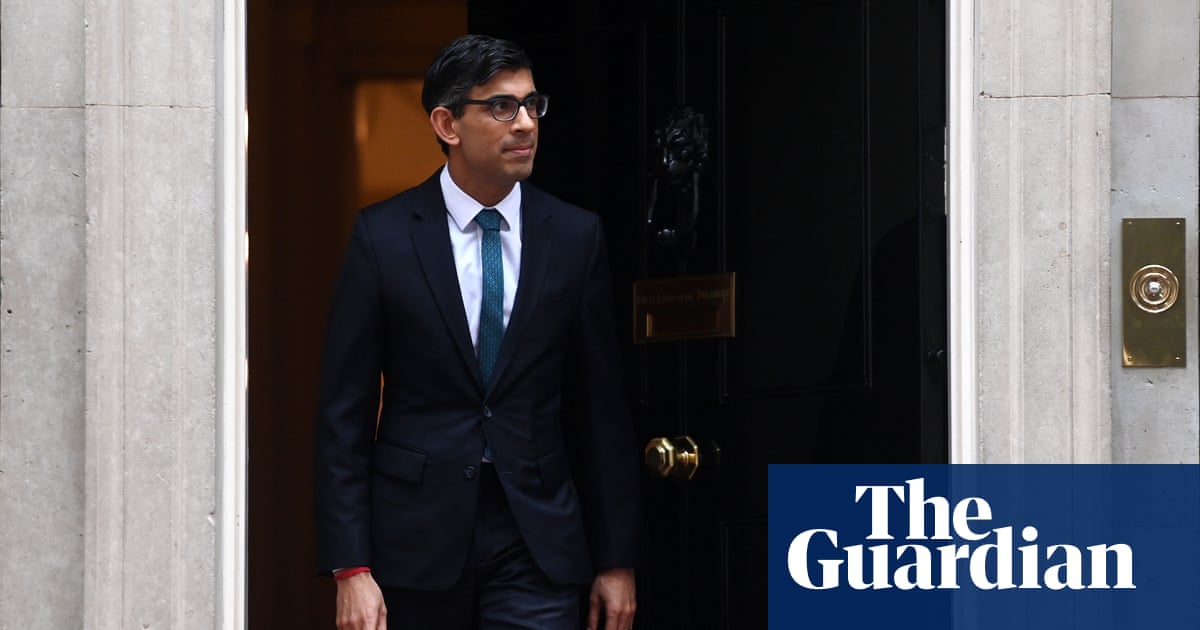
The European Research Group of Eurosceptic Conservative MPs is demanding to see the full text of any deal on the Northern Ireland protocol, piling pressure on the prime minister to meet their demands of radical changes to the Brexit trading arrangements.
Their demands come as Maroš Šefčovič, the European Commission vice-president in charge of Brexit, said the EU and the UK could “see the finishing line” for a deal.
He was due to have a meeting via video link with the foreign secretary, James Cleverly, on Tuesday but told reporters earlier that he hoped the deal would “create conditions for the next 25 years” of peace in Northern Ireland.
Sir Jeffrey Donaldson, the Democratic Unionist party leader, plans to address the ERG on Tuesday amid growing “fears of a sellout” in the group.
The DUP chief has already said the deal on the table “falls short” of the seven conditions it laid out for the deal and for resumption of power sharing in Stormont.
A senior source at the ERG said the failure to get the DUP involved from the start was a schoolboy error.
“They [Downing Street] had a deal last week but they didn’t share it to the DUP before last week. So they don’t have a deal now,” said the MP, in reference to Sunak’s first briefing of DUP MPs last Thursday and Friday in Belfast.
“They have not handled this very well,” the MP added.
One source close to Downing Street said a text had been shared with the DUP last week, although another MP claimed the DUP had said it was more like “a command paper” than the text of a deal.
The ERG also wants a line by line review of any deal by its “star chamber” of lawyers, who in the past have included Martin Howe KC, before deciding whether to reject or back it.
The prime minister’s spokesperson played down the prospect of a deal being announced on Tuesday or Wednesday. There is some concern that the longer the two sides leave it to strike a deal, the greater the risk of it unravelling.
If a deal is agreed, the government is expected to move quickly, with hopes that the European Commission president, Ursula von der Leyen, could come to London to shake on it.
Ministers still hope to put the deal to a vote in the House of Commons, as it would bind in MPs politically, but No 10 has so far refused to commit to a vote.
Government insiders have stressed that the DUP will not be shown the text of the agreement before it is struck and will not be granted a veto on the contents.
A deal to end the protracted dispute has been in the offing for the past month, but after Sunak’s dash to Northern Ireland last week, old battle lines over hard and soft Brexit have been drawn.
One senior ERG member said the “protocol will never work” and it will just “get worse” if it is left in place and the number of EU laws applying in Northern Ireland and not the rest of the UK increases.
There has also been criticism of Sunak’s plans to abandon the protocol deal in exchange for a deal with the EU. Government insiders said it was always intended to act as an insurance policy.
They said Boris Johnson had done exactly the same when he introduced the internal markets bill, and dropped clauses to get the Brexit deal.
The former justice secretary Sir Robert Buckland, who had previously defended the protocol bill, has said he no longer believes it has legal justification.
Sources have also suggested the attorney general, Victoria Prentis, has grave doubts about the bill, though her office has said she is not intending to contradict previous legal advice.
In an article for the House magazine, Buckland said the bill had begun in a climate where negotiations were in deadlock, which was no longer the case.
“Its first political aim, namely the start of negotiations with the EU, has been achieved, it follows that the legal argument that the bill was necessary because there was no other way of achieving change has evaporated,” he wrote. “The Northern Ireland protocol bill has outlived its political usefulness and no longer has any legal justification. It is the proverbial dead letter.”
Buckland said the deployment of the European court of justice as a barrier to agreement was notable as it did not feature in the DUP’s seven tests. “Cynics would be justified in concluding that if the issue was not important enough to be one of the tests, then its deployment at this stage is for purely political reasons,” he wrote.












